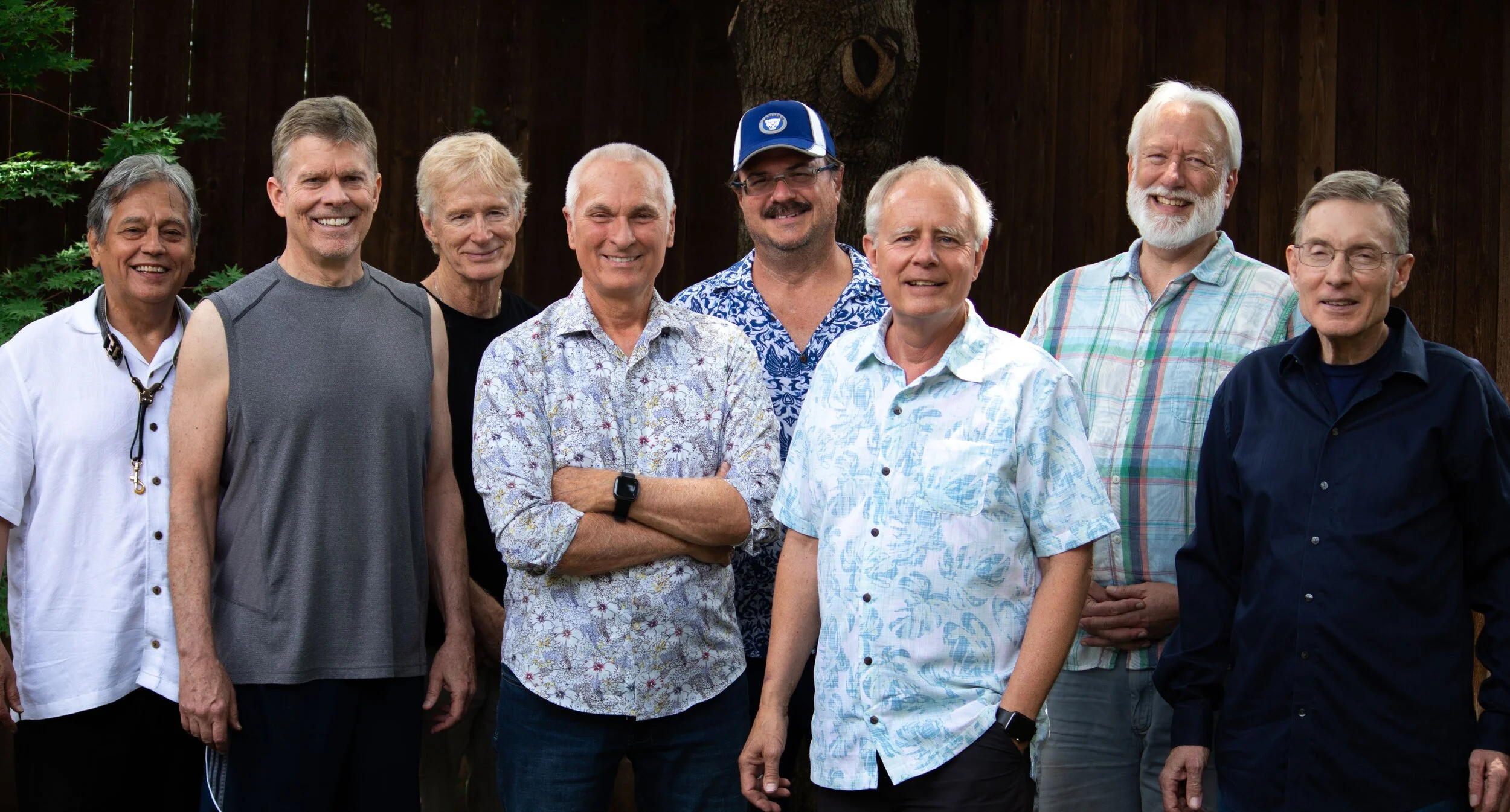Weather Disasters—Does a Loving God Create Them?
Attempting to answer some hard questions
I am a meteorologist, and I am a Christian. I recognize the power, the creativity and the mystery of God in weather. I see established “rules” of nature that point to a created order that allows us to forecast atmospheric conditions that have yet to occur. At the same time, weather can sometimes surprise us; because admittedly, there are attributes of the atmosphere we still don’t completely understand.
Anyone who has read much of the Bible knows many authors of scripture attributed nature’s energy to a surprising and powerful God. They spoke not only of God’s might through the changes of seasons and the gift of replenishing rain, but also through the harshness of heat and the destruction of severe storms. Even today modern believers, writers and poets often point to a God Who displays His attributes and handiwork in the forces of nature. Several of Christendom’s most loved hymns speak of God’s rule over creation, including the classic “How Great Thou Art,” written after the author witnessed a spectacular thunderstorm.
We also have questions—lots of them— about how and why God works through the physical sciences. Not long ago a friend of mine posted on my Facebook page, asking why a loving God would create floods, tornadoes, hurricanes and wildfires that brought damage and death to so many people. Referencing such events he wrote, “I was told that God was loving and compassionate. I do not see it.”
His question is worth considering, and though the dilemma of “How can a loving God allow disaster?” isn’t new, I’ve been thinking a lot about it lately. The question sometimes takes the form of a syllogism that looks a little like this:
A. If meteorological phenomena such as tornadoes, hurricanes, floods and wildfires are created by God,
B. And if such phenomena bring harm to humans and that is not good,
C. Then, (conclusion) God is not good.
This apparent logic has confounded people for centuries, especially people who believe that the God of the universe ultimately is good. I recently had the privilege of appearing on the “Weatherbrains” podcast with Dr. Peter Thuesen, a Professor of Religious Studies at Indiana University–Purdue University Indianapolis who wrote the award-winning book Tornado God: American Religion and Violent Weather. In the book, he outlines the extensive history of the link between weather and religion, and explores our attempts to see destructive meteorological forces through a theological lens. His discussion further prompted me to ask myself some hard questions and conclude what I believe about the subject.
Some of those conclusions center around what I think is bad “weather theology.” From ancient times to the present, we’ve heard well-meaning but misguided voices who proclaim the latest storm was God’s judgment on ______(fill in the blank with most anyone or anything). While I can’t say that God never directs His wrath in the form of severe weather these days, I don’t see a strong correlation between storms and punishment for wrongdoing, since tragedy befalls both the righteous and the unrighteous. I’ll admit that’s perplexing, since it doesn’t line up with our human understanding of justice.
Because it doesn’t seem fair that innocent people should suffer, we might gravitate toward my earlier syllogism. If it is true that (A-God created nature) and (B-nature can be bad), then isn’t (C-God must be bad) also true? I believe (A) is correct—God is undoubtedly nature’s Creator, including nature that brings destruction and death. But what about (B)? Can we say without a doubt that any weather that harms people is inherently vile or villainous? I don’t think so, because to do that, we would have to make two presumptions: first, that nature exists (or should exist) only for the benefit of humans, and second, that anything we call bad can never result in anything we call good.
I’ll address the second issue first. Scripture tells us again and again that God is good. I have personally witnessed the goodness of God and I have seen it displayed in the lives of others. That’s why I believe, as scripture tells us, that God often turns bad things into good things. A prime example is the Biblical account of Joseph, the son of Jacob. Though a righteous man, much of his life was marred by adversity—he was sold into slavery, he was falsely accused and imprisoned, yet he told those who hurt him, “You intended to harm me, but God intended it for good…the saving of many lives.” God used Joseph’s calamities to place him in a position that ensured the survival of Israel.
Throughout history we hear of Christians tortured, burned and oppressed, yet the Church has continued to grow. Even in modern days we often observe a strong faith emerge from those who have faced persecution or peril. Yes, God clearly makes silk purses out of sows’ ears.
To our human minds, that seems backwards. But through the prophet Isaiah, God says, “My thoughts are not your thoughts, neither are your ways my ways.” God does things differently from the way I would do them if I were in charge. He doesn’t promise a lack of trouble. In fact, He promised just the opposite (John 16:33). We know bad things happen and always will. But we also know there is often a higher purpose to bad things. Sometimes we see what that purpose is. Most of the time we don’t.
Earth is not heaven, and we shouldn’t expect it to be, and as an Earthling I am not privy to all God’s thoughts and plans. But I’ve seen glimpses. As a volunteer performing storm cleanup in southern Georgia after Hurricane Michael and tornado cleanup in Middle Tennessee, I have witnessed the outpouring of love and gratitude displayed not only from my fellow volunteers, but also from those who have suffered loss. It’s the kind of love that is commanded over and over in the Bible. It’s a love that honors disaster victims, and also honors God. Why it sometimes takes tragedy to bring about that kind of love is something I have no answer for, but again, I have no trouble admitting that God’s ways are not mine.
As a result, such explanations are incomplete and unsatisfactory, but God has no obligation to answer all my questions to my satisfaction. And if He tried to answer me, would I even understand? I’m reminded of the time one of my children asked me for a car. I said no, and tried to explain that I wanted to teach financial responsibility. That answer was hard to understand, and it was much easier to assume other reasons—that perhaps I was too poor or too powerless to give such a gift, or maybe I just didn’t love my kids enough. Both reasons seemed more probable to the mind of a teenager, but both were incorrect. Because we don’t always understand why God does what He does, we too are prone to false assumptions.
Now for the issue of nature’s purpose—the idea that the natural world should exist for the constant comfort of humans. We need to remember that humans are not the only occupants of this planet. The whole of nature is much bigger than us. Ask many scientists and naturalists and they will tell you there is purpose in nature, and that purpose often has little to do with pleasing people. For example, no respected zoologist would label bears as “bad,” even though humans suffered bear attacks more than six hundred times over the first fifteen years of this century. More than four million Americans are bitten by dogs every year, but try convincing the 48 million dog owners in this country that God is cruel for allowing their pets to live.
Back in 1988 I talked to a forester at Yellowstone National Park while much of the park’s woodlands were being devastated by wildfires. Granted, this was before climate change was a big part of the conversation, but I asked him, “How bad are the fires?” His reply was unexpected. “Bad for whom?” he retorted, explaining that yes, the fires severely disrupted human activities, but that nature was just doing what nature does. He went on to describe how fire plays a big role in the life cycle of a forest, sharing how nature often metes out sudden changes that destroy some life, but also give opportunity for more and different kinds of life to grow. That was a hard pill for me to swallow at the time (and it still is), but upon reflection, it has the ring of truth.
So what are my conclusions? As imperfect as they are, and until I gain more insight on the subject, here’s what I believe: 1) God created nature. 2) Nature is sometimes harmful to humans. 3) Earth isn’t heaven and is thus a battleground where good and evil and comfort and catastrophe exist side-by-side. 4) Even though God created some things that are harmful to humans, He most likely still has a purpose in that creation. 5) We may never know that purpose in this life because we can’t read God’s mind. 6) Because we don’t think like God, these answers are not satisfactory to us, and it is probable that we wouldn’t understand His rationale anyway. I’m not happy about that, but then God’s prime objective isn’t to ensure human happiness.
I do believe that God knows us intimately and cares about our welfare. The fact that He allows tragedy does not disprove that. He never promised us a comfortable life on this Earth, but He did promise to closely accompany us through it. All this is why I am glad there are dedicated men and women who are called to warn us when nature threatens our lives and property. This is why I grieve when nature takes a life. This is why I am thankful for those who take seriously the Biblical mandate to love others, including those who suffer loss from natural disasters. The book of Romans tells us, “Rejoice with those who rejoice, weep with those who weep.”
Every time there is a destructive weather event, we have ample opportunity to do just that, and we can be sure that when we take the opportunity to love one another it will ultimately result in good. There is certainly purpose in that; and for now, perhaps that's all the answer we need.
© Nick Walker 2021
I would love to hear your opinions, observations and insight. Feel free to scroll down and comment.
You can hear the Weatherbrains podcast on this topic here.
You can purchase Dr. Peter Thuesen’s book Tornado God: American Religion and Violent Weather here.


